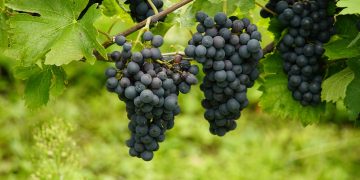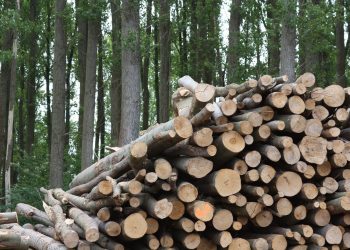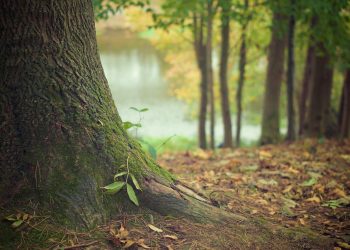Our ancestors dealt with large-scale environmental challenges thousands of years ago. Understanding their traditional practices may inform modern Europeans racing to adapt to climate change today.
Heathlands, with their scrubby, woody plants and sandy soil, cover large tracts of Europe. Although the soil is not very nourishing, heathlands are home to unique flora and fauna. Once believed to be natural scrubland, most heathlands were formed when forests were cleared for agriculture in prehistoric times.
The existence of heathlands is maintained with the grazing and burning techniques of land management over long timeframes. They must constantly be renewed, and in some respects, heathlands are deeply entangled in the human cultural landscape.
Many heathlands have survived for thousands of years through countless climate, population, economic and infrastructural transformations. Their resilience may suggest ways in which humans and nature can thrive together dynamically, if their ecological fabric can be understood.
Today, heathlands are under threat with more than 90% of them disappearing in the last 150 years, mainly due to the intensification of farming, a lack of sustained management, and because of pollution from industry.
The ANTHEA project, also known as Anthropogenic Heathlands: The Social Organization of Super-Resilient Past Human Ecosystems, researches the ways in which human interactions with heathlands have changed over time.
‘There is currently a trend towards nature conservation and restoration resting on the idea that we want to take people out of nature,’ said Prof Mette Løvschal, an archaeologist at Aarhus University in Denmark who studies Neolithic heather landscapes from an archaeological perspective. Yet, she argues that ‘heathlands and their more than 5 000 year survival depend on the presence of humans.’
Grazing spaces
Thousands of years ago, people in Northern Europe cleared tracts of post-glacial forest to create space for their grazing animals. Naturally-occurring species of heather flourished in such landscapes, providing an evergreen source of winter grazing and other valuable resources such as fuel and bedding.
For thousands of years, humans have continued to maintain these special areas, in which nature and humans rely on each other. The question is, what features of the landscape – location, soil composition, habitation, land use and organisation factors, for example – are important to the survival of heathland.
“
Heathlands and their more than 5 000 year survival depend on the presence of humans.
Heathlands offer pastoralists an advantage over grass in that, while grass is more nutrient rich than heather, it tends to die out in winter. In fact, farmers’ livestock – sheep and goats in particular – can graze on heather in the cold months, without farmers having to collect and store fodder. These landscapes require continuous maintenance over generations, Løvschal explained.
‘Heathlands in themselves are an unstable landscape,’ said Løvschal. ‘Most places quite quickly, within 15 to 25 years, transform into forest if you don’t manage them with grazing, cutting, or by controlled fires.’
Plant records
For the ANTHEA project, researchers are combining the archaeological history of humans with ancient plant records in seven case-study areas from Norway to Ireland.
‘Several of us are working with archaeological material,’ said Løvschal. ‘When do the earliest kinds of settlements appear in the heathlands? Is there any evidence of people using heather or turf as a construction material or as fuel or as bedding?’
With that information, the researchers will see how people engaged with the heathland on a practical as well as a social and ideological level.
Excavation of ancient pollen can reveal which plants once inhabited the landscape. Tree, shrub and grass pollen blow through the air before settling on the ground or sinking to the bottom of a body of water. Over time, soil and organic matter cover this pollen, trapping it in the ground.
By extracting long cylindrical samples of soil, known as cores, from the bottom of lakes or wetlands, researchers can identify and date the pollen and ultimately reconstruct the ancient landscape. Microscopic charcoal also points to whether the heathland had been burnt and when.
Beautiful balance
This is not the first time heathlands have been under threat, Løvschal said. During the Bronze Age, about 5 000 years ago, people tore up large tracts of heathland and grasslands to create human burial mounds, known as barrows. Unfortunately, this activity ‘led to an ecological catastrophe’ since removing turf causes an extreme depletion of soil fertility. On the other hand, there have also been times at which humans and heathlands were ‘in beautiful balance’.
One of the major questions the ANTHEA project addresses is the ways in which this ‘beautiful balance’ was achieved by different pastoral groups across Europe and ‘whether the long-term survival of these heathlands was the product of people doing very similar kinds of things or whether they gave rise to a myriad of ways of living and organising.’
The TerraNova project is also looking to ancient landscapes to identify ways in which humans can sustainably coexist with nature.
‘We want to understand how natural landscapes have been shaped over time in order to find the best practical guidelines and solutions for sustainable land use,’ said Prof Karl-Johan Lindholm, an archaeologist at Uppsala University and co-investigator on TerraNova.
Historical epochs
Archaeology divides historical epochs based on human technology and tool development, so we have The Stone Age, The Bronze Age, and The Iron Age.
Anthropology, on the other hand, identifies human organisation by size and complexity, so you have community, tribe, and state, Lindholm explained. ‘None of these conventional explanatory frameworks is really helpful for land management.’ That’s why the researchers are applying an interdisciplinary approach, using information from archaeology, ecology, climatology, and landscape studies.
“
There are landscape consequences for certain activities.
The project is investigating land use over time at different ‘field laboratories’, which run along river catchment areas in Sweden, in Germany and the Netherlands, and in Portugal, Romania and Spain, Lindholm said. Catchment areas represent a number of different environments through which water flows to a river.
Ecosystem study
By mining existing data in the archaeological and paleo-ecological (the study of ecosystems in the distant past) records, the project will model the vegetation, animal distribution and human land use over time to develop different scenarios and land-cover models.
‘Our ambition is to have a digital European atlas,’ Lindholm said.
TerraNova researchers are also engaging with people who are currently managing land to provide insight and tools for policymakers.
‘Basically what TerraNova aims to do is better understand these kinds of landscape histories in order to provide recommendations, tools, and guidelines for helping today’s land managers to understand and manage their landscapes in a more sustainable way,’ he said.
The research in this article was funded via the EU’s European Research Council and the Marie Skłodowska-Curie Actions (MSCA). If you liked this article, please consider sharing it on social media.
O artigo foi publicado originalmente em Horizon, the EU Research and Innovation Magazine.


















































